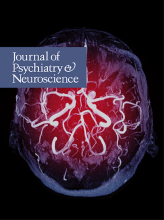Sara, an 8-year-old girl of Asian descent, was referred for psychiatric assessment in grade 3. She was the elder of 2 children in a stable, intact, middle-class family. Sara was temperamentally shy and spoke English with a slight accent, but her development history was otherwise unremarkable. Sara’s parents immigrated to Canada shortly before her birth, but they spoke English with their children at home and reported Sara’s speech to be normal there. Starting in kindergarten, Sara did not speak to teachers, but she whispered to her sister and 1 familiar peer in the school yard. Many behavioural strategies were attempted to elicit speech in class, but none succeeded. In grade 1, Sara’s pediatrician recommended fluoxetine, but her parents were unwilling to consider psychotropic medication for her at that time. In the ensuing 2 years, Sara’s functioning deteriorated. According to Sara’s grade 2 progress report card, her teacher was “unable to evaluate” Sara for many subjects and subsequently raised the possibility of her having a developmental delay. Sara’s familiar peer moved away, increasing her social isolation.
After a thorough assessment, consultation with Sara’s school and several family discussions about the risks and benefits of medication, Sara’s parents reluctantly agreed to a trial of fluoxetine. Sara experienced no adverse effects from this medication. After 3 weeks of taking 10 mg of fluoxetine per day, Sara appeared more relaxed and began talking to her sister’s friends. Concurrently, her grade 3 teacher patiently spent a few minutes each day reading and talking to Sara one-on-one. After about 8 weeks on medication, Sara began answering her teacher’s questions, and soon afterwards she began speaking in class. Relieved, her parents decided to discontinue medication, and proudly announced “All she needed was the right teacher.” They declined further psychiatric follow-up.
Sara’s case represents a typical example of selective mutism, a condition where children fail to speak in certain social situations despite generally being able to speak at home. Minor abnormalities of speech or speaking English as a second language are common in these children and may contribute to their self-consciousness or social anxiety.1
Given the frequent link between selective mutism and social anxiety, selective serotonin reuptake inhibitors (SSRIs) are sometimes considered, especially in patients in whom psychosocial intervention has failed. As in Sara’s case, parents are usually reluctant to medicate young children, which often results in treatment delays and deterioration in functioning. Further increasing parents’ and clinicians’ concerns about medical treatment, pharmacotherapy for selective mutism is off-label, evidence for SSRIs is limited and the long-term effects of SSRIs in this population are unknown. Evidence supporting the use of SSRIs to treat patients with selective mutism consists mostly of case reports and open trials, and includes fewer than 100 cases in total.2,3 A positive randomized controlled trial of fluoxetine (n = 15; 6 on fluoxetine and 9 on placebo) was published in 1994.4 A placebo-controlled multiple-baseline research design evaluated sertraline in 5 children with selective mutism, but failed to find group differences in mutism or anxiety.5 One other comparative study, a nonrandom, naturalistic follow-up of 17 children, reported that those receiving various types of SSRIs (n = 10) showed better functioning than those not receiving SSRIs (n = 7).6 Moreover, as in Sara’s case, pharmacotherapy is usually combined with psychosocial interventions, making it difficult to attribute improvement to one or the other treatment method.
Nevertheless, the frequent association between selective mutism and social anxiety (a disorder that has been shown to be responsive to SSRIs in several large randomized controlled trials7) and the findings of 2 systematic reviews on selective mutism2,3 suggest that these medications merit consideration in this population, particularly when symptoms are severe and fail to remit in response to psychosocial interventions. The risks and benefits of medication must be carefully evaluated in each case against the risks and benefits of not pursuing medication (e.g., the risk of academic and social deterioration). Common side effects can include nausea, stomach aches, headaches, insomnia and restlessness.7 Fluoxetine has the most empirical evidence, so it is often the first medication chosen,2,3 but data on optimal dosage and duration of treatment are lacking. Medical approaches to selective mutism clearly merit further evaluation.
Footnotes
Competing interests: K. Manassis declares receiving grant support through her institution from Bell Canada and royalties from Barron’s Educational, Routledge and Guilford. None declared for D. Avery.
The information in this column is not intended as a definitive treatment strategy but as a suggested approach for clinicians treating patients with similar histories. Individual cases may vary and should be evaluated carefully before treatment is provided. The patient described in this column is a composite with characteristics of several real patients.
Psychopharmacology for the Clinician columns are usually based on a case report that illustrates a point of interest in clinical psychopharmacology. They are about 650 words long. Columns can include a bibliography which will be available only on the journal website.






